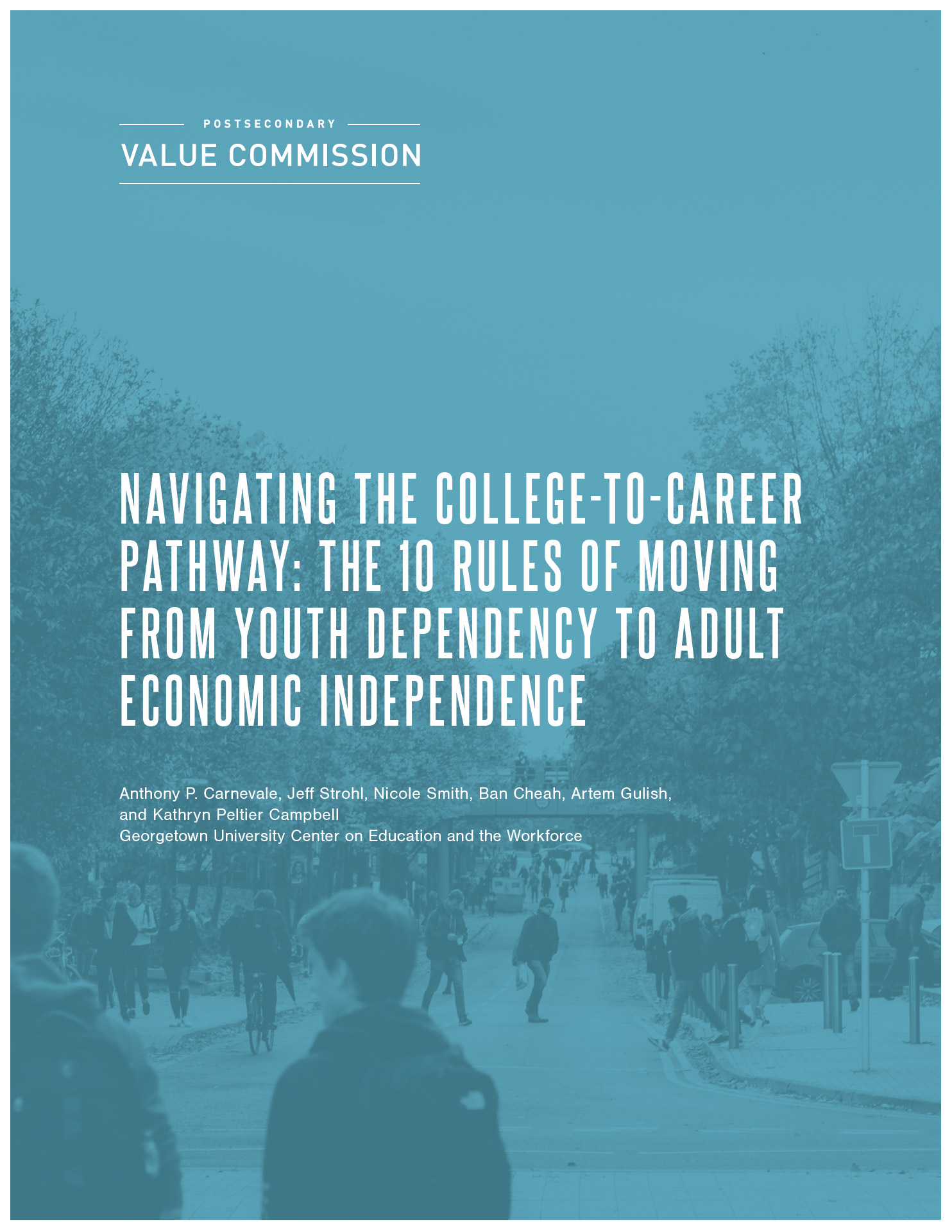Navigating the College-to-Career Pathway
The 10 Rules of Moving from Youth Dependency to Adult Economic Independence
Summary
Over the past half century, postsecondary education has played an increasingly important role in career preparation in the United States. Having a college degree or certificate has become both more valuable in the labor market and more expensive, with much of the burden falling directly on students and their families. Meanwhile, the postsecondary landscape has become increasingly complex. Navigating the College-to-Career Pathway: The 10 Rules of Moving from Youth Dependency to Adult Economic Independence, published in partnership with the Postsecondary Value Commission, highlights key considerations for students as they prepare to make one of the biggest financial decisions of their lives.
10 Rules of Moving from Youth Dependency to Adult Economic Independence
College tends to be a good investment, but it involves significant risk based on program of study, level of educational attainment, and occupation after graduation. To differentiate among the myriad options on the postsecondary pathway, students and their families should follow these 10 rules of the college and career game.
Rule 1
Know before you go.
Rule 2
When faced with poor job prospects due to recession, go to school.
Rule 3
Get more postsecondary education if you can, because more education typically pays better and yields better employee benefits than less education.
Rule 4
Choose carefully when selecting a major and program of study, since these factors may matter more than your education level.
Rule 5
Do not worry too much about where you go to school: institutional brand adds value, but not nearly as much as most people believe.
Rule 6
Realize that field of study alone does not determine workforce outcomes.
Rule 7
Know the costs and benefits of your choice of major: at the median, majors like humanities, education, and psychology rarely catch up with the highest-earning majors.
Rule 8
Seek out a curriculum that provides broad learning across disciplines as well as deep learning in a subject area.
Rule 9
Focus on competencies required in individual occupations and common occupational clusters.
Rule 10
If you are a woman or a member of an underrepresented racial or ethnic group, the deck is stacked against you—so you will need to take additional measures to optimize your outcomes as long as our education and labor market systems remain unjust.

Key Recommendations for Administrators and Policymakers
Administrators and policymakers can help smooth students’ pathways to economic independence by following these key recommendations:
- Mandate transparency and economic accountability for all postsecondary programs and institutions.
- Enhance counseling and other student services.
- Provide high-quality experiences that align education and work.
- Come to terms with the underrecognized value of the intellectual and caring professions.
- Conduct research on the economic and noneconomic value of different mixes of general and specific education.
Resources
Published in partnership with the Postsecondary Value Commission, Navigating the College-to-Career Pathway: The 10 Rules of Moving from Youth Dependency to Adult Economic Independence highlights key considerations for students as they prepare to make one of the biggest financial decisions of their lives.

